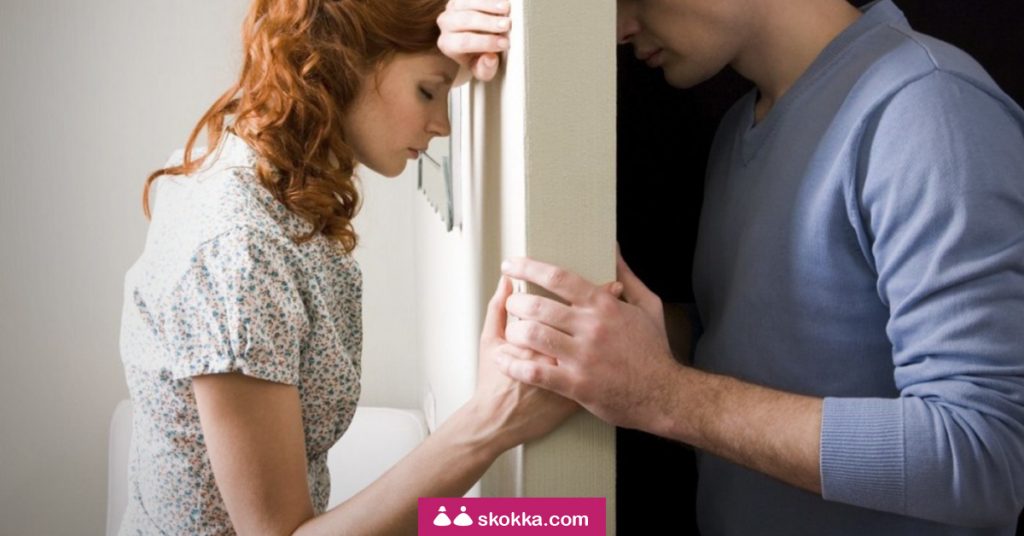Vaginismus can appear at any time in a woman’s life and can have various sources, from sexual trauma, childbirth or menopause.
But do you know what vaginismus is?
Vaginismus is the involuntary contraction of the vaginal muscles, which causes discomfort during sexual intercourse, and even when using tampons… The pain occurs mainly at the entrance of the vagina, sometimes preventing penetration or even the performance of gynecological examinations.
“My body won’t let me have sex,” is one of the female complaints. Many women don’t even know it exists until they try – and fail – to have sex once. At that point, they may then discover they have the disorder.
Feeling pain during the first sexual intercourse can perhaps be considered normal, after all, apart from the rupture of the hymen, it is usually a moment of tension and a lot of nervousness for most people. But, once this is over, is it normal to continue to feel discomfort? The answer is no.

Many women continue to have these discomforts, and sometimes for fear of what people will say, or even out of embarrassment, they do not talk about it. And that is a mistake! It is very important to see a gynecologist to perform tests and identify the possible cause of the pain. In many cases, it may be vaginismus.
Causes of pain during sexual intercourse
Do you usually find sex bad?
Are you suffering pain, discomfort and want it to end soon?
Think you’re not excited enough yet?
You believe you are frigid and can go months without sex?
Perhaps you do feel pleasure, but only when there is no penetration?
If you identify with any of these questions, you may be suffering from vaginismus.
Vaginismus is the cause of a considerable number of women disliking sex, but enduring the discomfort because in their minds this is how they are and there is nothing that could be done to change the situation.
Fear
90% of women with vaginismus report pain during intercourse.
Women suffering from vaginismus are fully capable of feeling aroused, and have sexual desire, but the problem occurs when, after going through a traumatic experience, they develop an aversion to the act.
Suffering from vaginismus due to psychological issues
An important step is to try to understand the psychological problems associated with this involvement.
Experts explain that there is a cycle that the woman goes through in this process. At first it starts with anxiety and fear, of the sexual act itself and the pain it may cause, consequently, the body responds with involuntary contractions in the vagina, making the act painful.
What happens is that after some traumatic experiences, the body’s response is to adopt a defensive posture, and it is at that moment when the lack of desire takes place. It is as if the body itself is saying “don’t put me there because it is not good for me!
Lack of affection
Unhappy relationships, or relationships in which the partner is not patient and attentive during sex, can also lead to vaginismus. It is very important to make your partner aware of the importance of foreplay and stimulation before penetration.

Trauma
A woman’s history of physical or emotional abuse may make her apprehensive during sex, since penetration is already associated in her mind with pain.
Vaginismus due to family history
A restrictive, repressive or overprotective upbringing can also help a woman develop this condition, since sex is associated with something bad or forbidden. For some, even a sin.
Physical problems
- Menopause
- Endometriosis
- Vaginal infections
- Myomas
- Intestinal diseases
- Injury in the pelvic area
- Ovarian cyst
The possible physical triggers of vaginismus are infinite, so initially it is essential to go to a gynecological consultation to find the best treatment to use.
Vaginismus is curable!
The good news is that vaginismus has a cure. If you suffer from this disorder or know someone who does, seek help. The gynecologist, physical therapist and psychologist should work together so that the symptoms of vaginismus can be overcomed.
On the other hand, there are exercises that women can perform at home, such as the pomp exercises, which help in the treatment if performed correctly, and the Kegel exercises, which work the intimate region of the female body, with the purpose of facilitating penetration.
The use of dilators, vibrators and even finger stimulation of the region can help a lot. Go for it!
However, vaginismus is a pathology that can affect any woman. So there is nothing to be ashamed of. It is possible to cure it, and the success rates are very encouraging. So there is no point in prolonging the problem for a long time.
In the end, the best thing to do is to seek help and get back to enjoying a full sexuality.





